Caso Chevron
Secret emails reveal Ecuador’s high-level campaign to win U.S. hearts and minds
AMI Newswires 09/02/2016
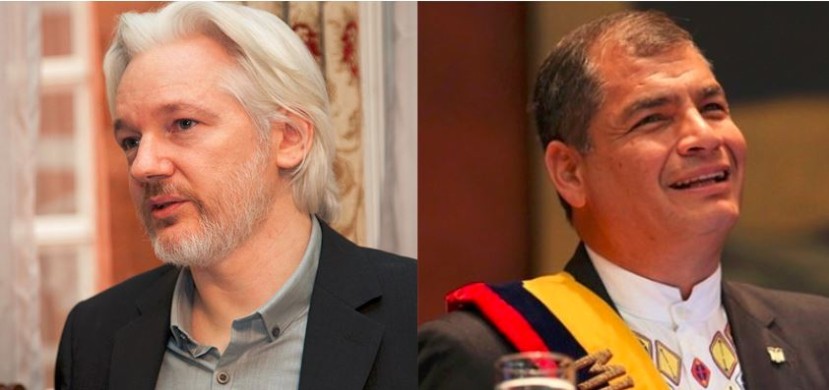
Photo: AMI Newswires
Rafael Correa, Ecuador's leftist president, has a flair for publicity, as he demonstrated again last week in claiming vindication for harboring the fugitive Wikileaks founder Julian Assange.
But a separate high-profile case shows just how far he will go to manipulate international opinion.
American Media Institute reviewed hundreds of emails from President Correa and his close associates that show the leadership of the small South American republic in 2013 and 2014 orchestrated a $6.4-million propaganda campaign against Chevron Corp. that was aimed primarily at the United States.
The regime employed public relations firms, lobbyists and celebrities and worked closely with Rolling Stone magazine to advance a “Dirty Hand of Chevron” narrative accusing the oil giant of environmental crimes.
The campaign enlisted elder luminaries including Danny Glover and Mia Farrow and sought to recruit Cher and Bianca Jagger.
In the Wikileaks case last week, Correa seized on a United Nations panel's ruling that Assange had been "arbitrarily detained" in Ecuador's London embassy, faulting Sweden and Britain. Correa suggested both his country and Assange were due compensation and vowed to continue protecting the publisher of government secrets, who sought refuge at the embassy in 2012 as he faced extradition over rape allegations in Sweden.
But like all governments, the Correa regime has secrets of its own. And its orchestration of the campaign against Chevron, which the Correa emails disclose for the first time, rivals the intrigue of the Assange affair.
The collection of hundreds of emails related to a high-profile legal case show Correa, who has ruled Ecuador since 2007, scrambling with his inner circle to manipulate international opinion as a lawsuit against Chevron fell apart.
The regime drew on a budgetary line item dedicated to “Publicity and Propaganda in Mass Media” to hire a media company, set up in Brooklyn by a childhood friend, for the purpose of hiring celebrities to push the regime’s propaganda line in a lawsuit involving Chevron.
The emails go into entertaining detail about efforts to rustle a herd of show-business supporters including Jared Leto, Michelle Rodriguez, Benjamin Bratt, Daryl Hannah, Pink Floyd co-founder Roger Waters, and Sharon Stone.
They also shed light on how sophisticated political messaging toward Americans has become available even to a small, poor, notoriously corrupt regime. Ecuador’s per capita GDP is just $6,300 a year, according to the World Bank, and Freedom House rates its press as “not free.” Yet Correa was able to hire MCSquared, a Brooklyn PR firm set up by longtime friend Maria del Carmen Garay, paying the company $534,000 a month in deposits to a Citibank account on Park Avenue in New York City.
Garay’s MCSquared in turn subcontracted the celebrity recruitment to high-powered speakers’ agencies, including the Greater Talent Network of New York and the global American Program Bureau based near Boston.
Documents filed with the U.S. Justice Department show that MCSquared paid the Greater Talent Network $188,000 and paid the American Program Bureau $333,000 in late 2013 and early 2014 to find the celebrities as part of a larger media campaign.
The propaganda was in support of a decades-long lawsuit against Chevron by New York lawyer Stephen R. Donziger, which had collapsed amid revelations of corruption in Ecuadoran courts.
Since Correa’s election in 2007, Ecuador’s government had taken a strong interest in the suit. But as a U.S. federal court in Manhattan began looking into the judgment that Donziger won against Chevron in a provincial Ecuadoran court, Correa hoped to bring big names to the remote Lago Agrio oil fields to dramatize Chevron’s alleged environmental damage to the Amazon region of Ecuador.
The resulting campaign proved a disappointment to Correa, according to the emails.
Though the president felt energized by an October 2013 Huffington Post op-ed by activist Bianca Jagger, he pressed his aides constantly to find brighter star power than the 70-year-old ex-wife of Rolling Stones frontman Mick Jagger.
“We should bring Bianca into the ‘Dirty Hand’ campaign,” Correa wrote to his then-Ambassador to the United States Nathalie Cely Suárez, but he remained frustrated that no big celebrities were coming to his country to join his efforts.
Read more
Fuente OriginalNotas relacionadas
-
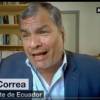 Correa: WikiLeaks estaba diciendo verdades solo de Hillary Clinton, no sobre Trump y eso es manipulación
Correa: WikiLeaks estaba diciendo verdades solo de Hillary Clinton, no sobre Trump y eso es manipulación -
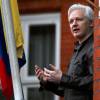 Filtración de correos del partido Demócrata de EE.UU. habría salido desde embajada de Ecuador en Londres
Filtración de correos del partido Demócrata de EE.UU. habría salido desde embajada de Ecuador en Londres -
 Andrés Michelena: “Assange, Correa y Maduro trabajan para desestabilizar la paz de Ecuador”
Andrés Michelena: “Assange, Correa y Maduro trabajan para desestabilizar la paz de Ecuador” -
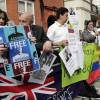 Assange y Ecuador cada vez más embarrados en la trama rusa
Assange y Ecuador cada vez más embarrados en la trama rusa -
 Una ‘piedra’ en la diplomacia llamada Julian Assange
Una ‘piedra’ en la diplomacia llamada Julian Assange -
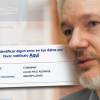 Julian Assange posee una cédula ecuatoriana
Julian Assange posee una cédula ecuatoriana
